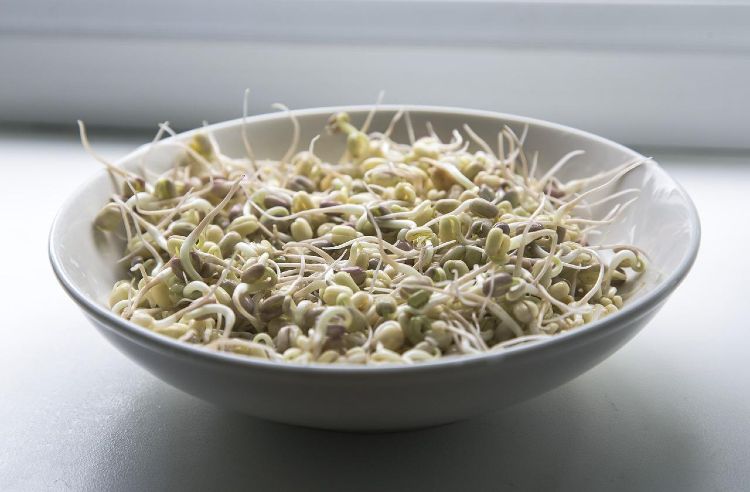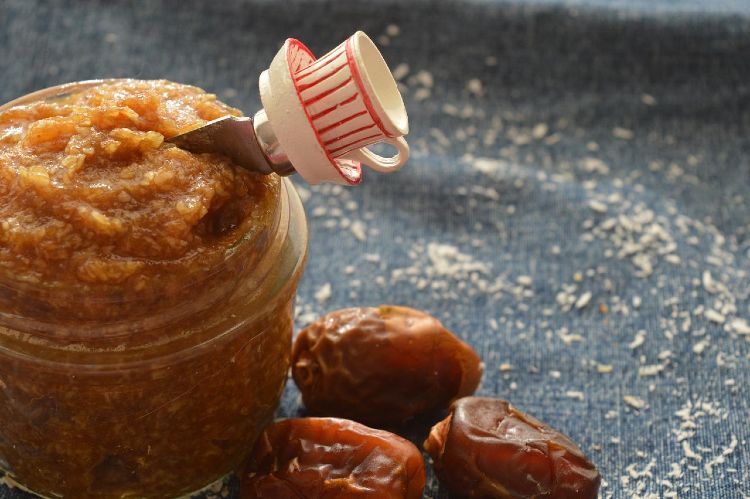The Daylesford Farm Summer Festival 2012
Despite the rain, wind and the continual overhang of ominous, grey clouds, visitors turned out in their thousands for the Daylesford Summer Festival on 19th May 2012.
It was organised well in advance to take into account the unpredictable British “summer”, and many of this year’s producers and experts were indoors in straw covered barns. On entering the festival all the visitors were given a very handy A3 size brown, recycled brown paper map and guide to the afternoon, detailing the schedules and events.
We started the tour with a visit round the farm shop, where seasonal fresh fruit and vegetables and flowers bedecked every table and shelf. The crowds had the same plan in mind, and very soon there was not a single seat left for breakfast in the farm café, the queue tailing its way round the building.
Outside, in the kitchen garden courtyard, an organic barbeque of Aberdeen Angus beef burgers and Gloucester Old Spot sausages was underway. Chilled Chateau Leoube Rose wine and Prosecco glasses were being served with the lamb cooked in the outside pizza oven. The smell alone drew the crowds.
We always make a point of stopping by the Garden Shop to learn from the seasonal, edible flowers and herb displays. The topiary garden at the back of the shop is always tended to pristine perfection, and it is a calm space to sit, away from the hustle and bustle of the day. In one corner the Union Coffee suppliers were giving out tasters of their Fairtrade coffees, and in another were stalls selling Daylesford’s own organic, homemade ice-creams and ciders.
The Producers’ Market was held in a big hay barn complex, and accompanied by the sound of an excellent four piece jazz band, we tasted our way through Adams and Harlow’s prize pork pies from Spalding in Lincolnshire and Hansen and Lyndersen’s smoked salmon from Kirkenes in Norway {established in 1923, and run by Ole-Martin Hansen in London}.
Chefs Vladimir Niza and Raymond Blanc were giving cookery demonstrations in the cookery school, and the queue to get in was far too long to join, so we made our way to the market garden. Past the Eco-building farm school, the heritage orchard and beehives, we met Jez Taylor, who is the Head Gardener of the Market Garden. He took us on a comprehensive tour of the 20 acre plantation, showing us the organic techniques of growing enough fruit, herbs and vegetables for the Daylesford Farm Shop and Café in Kingham, as well as the two London shops and Selfridges concession and the Ocado online delivery service.
Different groups of visitors were led hourly across the muddy terrain, past fields of garlic, rows of plum trees, salad beds and brassica borders. It was interesting to note that Jez and his team cover the soil with a biodegradable black matting, through which plants grow but weeds are suppressed. Two acres of the plantation is planted with grass and clover, as the latter fixes nitrogen into the soil and is one of the central tenets of organic agriculture, precluding the need to use artificial nitrogen based fertilisers.
Weeds that have grown during this very humid spring-summer period are flamed before the main crops of red onion, broad beans, brassicas, rocket, red Russian kale and salads are invaded by weeds.
Jez pointed out the chocolate spots on the broad beans, a fungal infection that can arise when the air humidity is very high at the wrong time of year. Rather than using chemicals, organic horticulturalists wait for nature to take its course and ensure that the soil is well watered during the growing season, the weeds are kept under control and the plants are not under stress, with adequate nutrition and space. The team grow a wide variety of cultivars for every vegetable type and as a result if one crop fails then, hopefully, a different variety will take its place on the shop’s shelves.
Jez has a shrewd business brain and ensures that every crop he grows pays its own way: he knows, per kilo, the market worth all the fresh produce, and aims to show that an organic, market garden operation can be profitable and sustainable in the long term. Daylesford are not able to compete against huge agribusinesses that use machinery to cultivate crops, but in the hand cut market Jez is confident that smaller, organic, artisanal producers are making headway.
He buys his organic seeds from the Tamar Organics company in Cornwall, and told us that vegetables grown from seed are the strongest, particularly shallots. The market garden business at Daylesford is expanding because of ever increasing demand. They are increasing the number of their polytunnels because there is so much demand for all the heritage varieties in particular. We tasted Florence Fennel fronds, sweet pea shoots, rockets and salads, and we saw rows and rows of coriander, parsley, beetroot leaves, spring onions, peppers, cucumbers and mint.
One polytunnel was full of cordon growing heritage tomatoes: Jez and the team grow 30 different varieties, including Black Cherry, San Marzano and Purple Russian. The plants are irrigated from below and from above, with day temperatures in the polytunnels reaching between 20 and 30 degrees C. in the warm season.
Jez was worried that the summer had not yet started, his plantation is around three to four weeks behind schedule and this meant that strawberries were still green, many fields had not yet been planted because the soil temperatures were too low and some vegetables had to be brought in from other organic growers which meant they were very expensive and the profit margins were not as high as for home grown produce.
In the propagation tunnel we saw red, lime, Greek, Thai and sweet basil plants as well as salad boxes that were grown with heated propagators. Jez recommends growing cut and come again salads in containers near the back kitchen door, as close to the house as possible for ease of access and watering.
Back into the throng of things, we feasted on beetroot, bulgar wheat, herb, lemon, carrot and rocket salads in the Café, with sourdough and fruit breads dunked into Chateau Leoube olive oil from Provence.
We then went to see the legendary Daylesford Emperor, the prize winning Aberdeen Angus bull, just three years old and probably 200kg in weight. Along with chickens, pigs, ducklings, ewes and ponies, there was also a dog competition and tractor rides to keep children occupied. In the Artisan Skills tent we listened to Head Baker Eric Duhamel talk about how the various sourdough, fruit, spelt and white loaves are made and there was an artisanal cheesemaking demonstration.
It is quite astonishing how many people attended the festival and the quantity of food, drink, plants and accessories that were purchased. Despite the continuing global recession and economic gloom mongering, Daylesford continues to prove that high quality, good provenance, skilful merchandising and consistent artisan skill education go a very long way in creating a sound and loyal customer base. It’s not just for the rich, it is for the discerning. The Summer Festival story goes from strength to strength: come rain, wind and dark clouds, we all came, we all saw, we all ate and we all learned.
Further Information
Daylesford Organic: www.daylesfordorganic.com
Follow the team on Twitter: @DaylesfordFarm
To buy groceries online go to: www.ocado.com/daylesford



